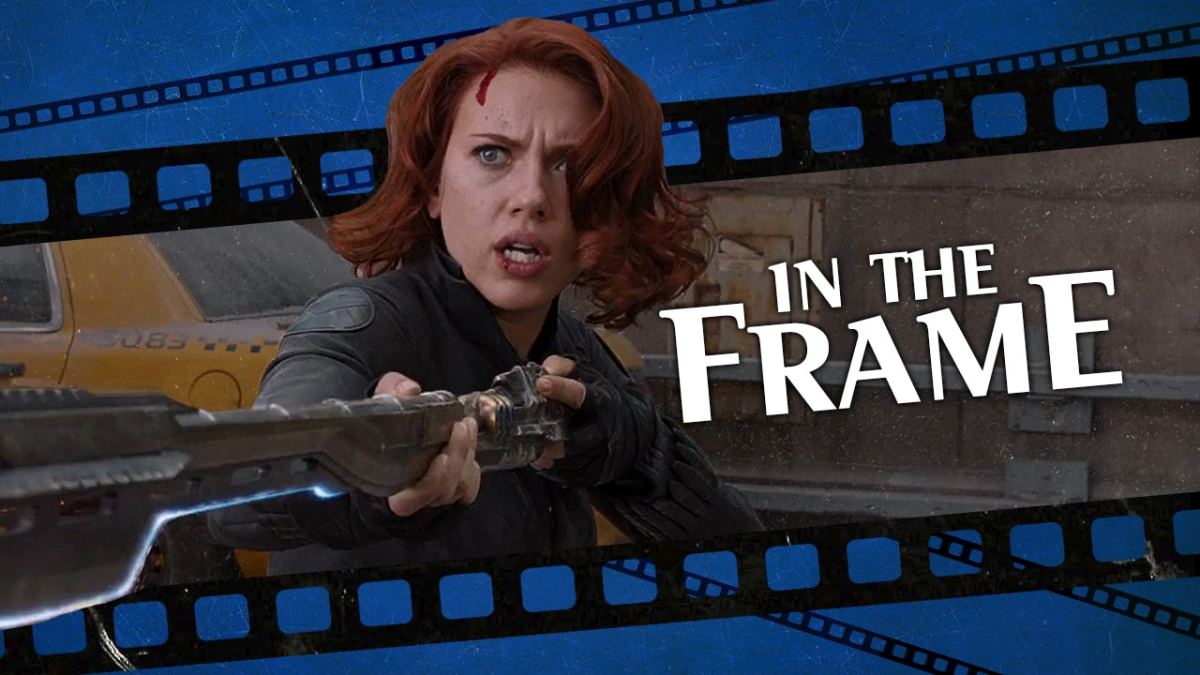It has been a year since the release of Avengers: Endgame, and since today marks the original planned release date of Black Widow, it makes sense to reflect on the character’s death sequence in Endgame.
The sequence remains one of the most divisive and controversial in Endgame. A lot of the criticisms of the sequence were on point. There is something uncomfortable in how the Marvel Cinematic Universe (MCU) weighs the life of Natasha Romanoff (Scarlett Johansson) against the life of Clint Barton (Jeremy Renner), particularly given how their separate arcs play out.
After “the snap,” Natasha steps into a leadership role among the remaining heroes. Meanwhile, following the disappearance of his family, Clint embarks on a rampage of murder and mayhem across the globe. The second act of Endgame brings Clint and Natasha to the planet Vormir to claim the Soul Stone. The only catch is that the Soul Stone requires the sacrifice of a life to claim it.
It’s a strange and contrived dilemma, but the internal logic doesn’t matter. One character has to die to give the Avengers access to the Soul Stone, so Natasha and Clint fight over which of them should die. In purely narrative terms, the answer is obvious: Hawkeye needs to die.
Not to diminish the pain of somebody who has lost his wife and daughters, but becoming a globe-trotting mass murderer is not something excused by grief. Hawkeye is not a grieving husband and father; he is a monster. He might need help, but he is also a clear danger to the people around him.
It’s debatable whether Endgame actually sees this. The movie is largely indifferent to the idea of life outside of the world of superheroes. As the Ancient One (Tilda Swinton) explains, the heroes of the film are gambling the fates of four timelines to undo their own failure. Tony Stark (Robert Downey Jr.) refuses to take any risks that would jeopardize his own idyllic family life.

There’s the implication that Natasha is passively complicit as well. She has Rhodey (Don Cheadle) tracing Clint’s rampage but manages to find him relatively easily as soon as she finds a possible solution. When Natasha finds Clint, she does not arrest him. Instead, she recruits him.
Nevertheless, it is clear that Endgame is building to Clint’s sacrifice. After all, what could happen if Clint goes home? Does somebody tell Laura Barton (Linda Cardellini) what her husband was doing while she was gone? Do people assume that Clint can return to a stable domestic life after making the choices that he has?
But Endgame swerves: Natasha throws herself to her death in Clint’s place, and Clint takes the Soul Stone back to the Avengers. Natasha’s death is briefly acknowledged, although somewhat overshadowed by Tony’s funeral at the end of the film.
This gets at one of the big problems with storytelling in the MCU, which is the prioritization of plot over characterization and theme. This is arguably part of a larger trend in popular culture, driven by (and perhaps also fueling) spoiler paranoia. The primary goal of a lot of modern pop culture is to surprise the audience, but without offering them anything too novel or unfamiliar.
This is obvious in a number of ways. Hashtags like #ThanosDemandsYourSilence or #DontSpoilTheEndgame suggested that surprise is the principle reason to see the films. Marvel edits misleading trailers and censors the scripts given to actors to prevent leaks, as if somebody discovering what happened in the film would ruin it.

This approach minimizes the importance of character within the film. The priority is to surprise the audience rather than to build organically from the established character. Even on a smaller scale, how can an actor be expected to manifest character if they are not informed of the basics of a scene, such as where their character had just come from, where they are going, and who they are with? Character is a secondary concern.
In Infinity War, both Tony Stark and Ebony Maw (Tom Vaughan-Lawlor) make the same joke about how Stephen Strange (Benedict Cumberbatch) looks like a children’s entertainer. Tony Stark is an irreverent superhero from Malibu; Ebony Maw is an alien death cultist. They should have different senses of humor. Instead, characters are largely distinguished by the different ways in which they are moved around the chess board.
This affects entire movies. Captain Marvel is built around a twist immediately obvious to anybody who has ever seen a movie; the Skrulls are not monsters, but victims. However, in order to preserve that twist, the film has to avoid exploring or developing any of its characters for over half an hour because any reflection on character would undermine the twist. What’s happening is more important than whom it is happening to.
This is a conscious choice. Captain America: Civil War is structured in such a way as to avoid affording Tony Stark or Steve Rogers (Chris Evans) any agency in the narrative. Neither character is fighting for an ideology or a purpose. They are reacting to things happening so quickly that neither really has time to make an active decision about what they are doing or why. It is just things happening.
Infinity War takes this idea to its extreme. The story is structured to keep Tony and Steve apart until any divide over Civil War no longer matters. There is never a point at which Tony or Steve makes an active choice informed by his character that affects the outcome of events. Similarly, Rhodey seems fine teaming up with the heroes responsible for the airport fight that crippled him.

It’s no surprise that an alternate cut of the sacrifice scene from Endgame adopts a similar approach. It finds Thanos arriving on Vormir, forcing Clint and Natasha into action. This has the effecting of minimizing any sense of agency within the sequence. The version in the theatrical cut is much stronger, if only because the characters at least offer the illusion of agency.
It’s clear that Natasha dies in Endgame in order to surprise audience members. After all, the initial plan for the scene had been for Clint to die. Natasha’s death comes out of left field. To use a cliché that is thrown around far too frequently in these sorts of discussions, Natasha’s death “subverts your expectations.”
This gets at the difference between a meaningful subversion and a meaningless subversion. A meaningful subversion does something interesting with audience expectations, shifting a story in an unexpected direction in order to reveal something insightful about what the audience wants from a particular story. It might even ask them why they wanted that story in the first place.
For example, Steven Moffat’s Doctor Who killed off the companion Clara Oswald (Jenna Coleman) for the arrogance of presuming herself equal to the Doctor (Peter Capaldi), mirroring the banishment of previous companions like Rose Tyler (Billie Piper) or Donna Noble (Catherine Tate). However, the Doctor then risked everything to resurrect Clara, inviting the audience to ask why they assumed a companion should be punished for growing and developing.
Star Wars: The Last Jedi is full of threads that play on similar ideas. What looks like a triumphant story about a rebel refusing to blindly follow authority becomes a cautionary tale about the dangers of fetishizing reckless impulsiveness. What looks like the story about the love of a good woman redeeming a lost young man becomes a story about how nobody can be responsible for another’s redemption.

This may explain why certain fans who are particularly invested in certain types of stories react so strongly against meaningful subversion. After all, inviting the audience to think about why they wanted a particular thing from a given story might easily be read as criticism of the audience or the story that they wanted. It is understandable that some fans get defensive about this.
A meaningful subversion often throws out an expected story to tell a better story. Natasha’s sacrifice in Endgame throws out the story of a man who became a monster finding some greater purpose in offering his life to help save billions of people, instead opting to tell a story about how a woman who cannot have children sacrifices herself to spare a murderous colleague who does.
It doesn’t matter what Natasha has accomplished or how she has accepted a responsibility for the safety of the planet that people like Steve Rogers or Tony Stark abdicated. In the end, all that matters is that Clint has a family to which he might go home, regardless of how much death and destruction he has caused in the intervening five years. This is not a better story.
Natasha’s sacrifice in Avengers: Endgame is the worst type of subversion. It is a cheap surprise that might catch the audience off guard on initial viewing, but it doesn’t feel like a satisfying conclusion to the characters’ stories. It sacrifices organic character work for the immediate thrill of upsetting audience expectation. It offers no insight. It just adds another line to the plot summary.
The death of Natasha Romanoff in Avengers: Endgame is meaningless, in the most frustrating sense of the word.






Published: May 1, 2020 11:00 am